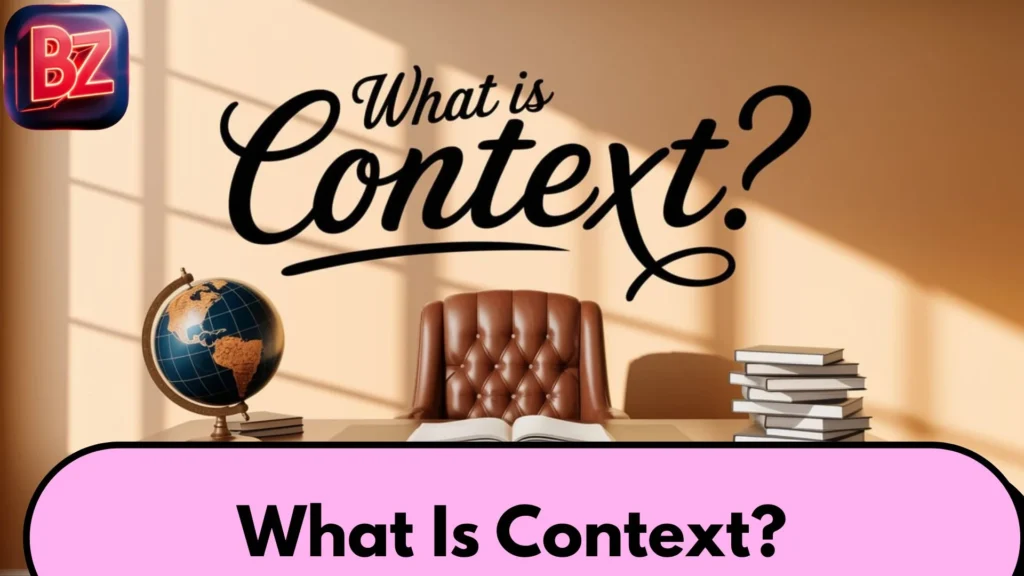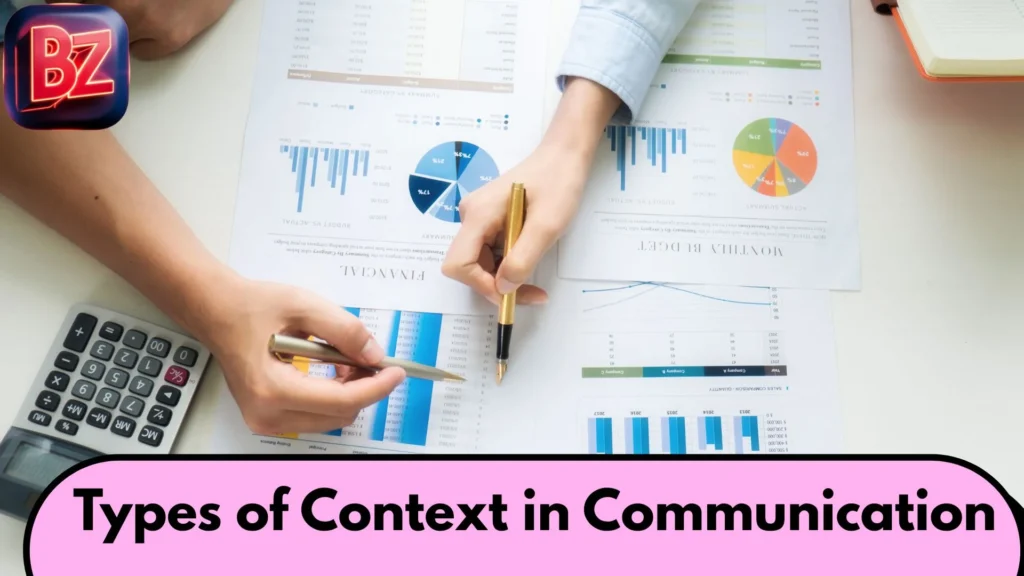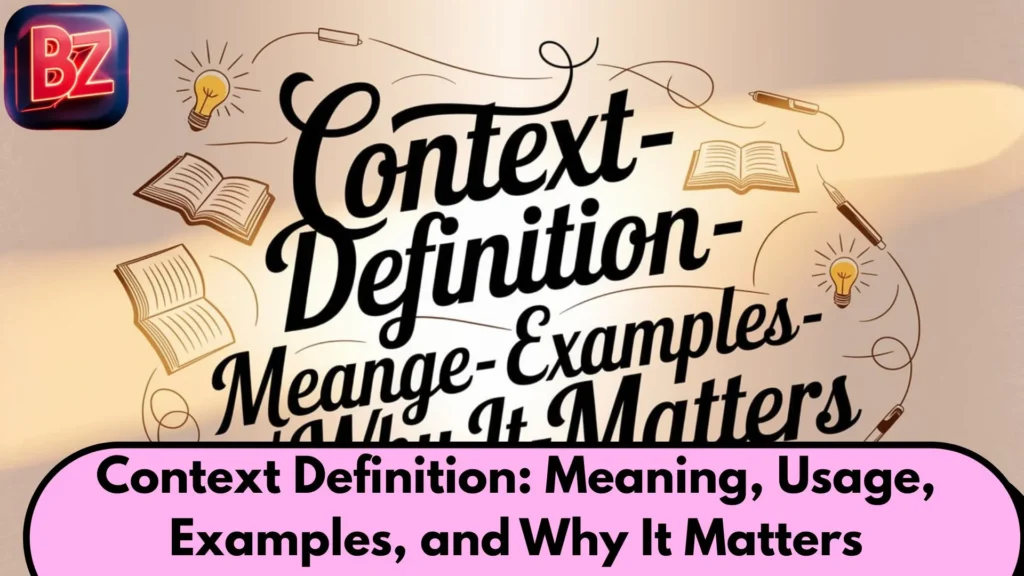Understanding context isn’t just for writers or linguists—it’s something we all do every day. Whether you’re interpreting a text message, watching a movie, reading a Bible verse, or chatting with a friend, context shapes how you understand everything.
In this article, we’ll explore what context means, how it works in conversation and writing, why it matters so much, and how it can change the entire meaning of a sentence. We’ll also look at examples, synonyms, real-life uses, and alternatives for words like “hiatus.”
What Is Context?

Definition and Origin
The word “context” comes from the Latin word contextus, which means to weave together. That gives us a hint: context is the weaving of words, tone, setting, and meaning that gives depth to communication.
In simple terms, context refers to the surrounding circumstances, background, or environment in which communication takes place.
Types of Context in Communication

Let’s break it down further. There are four key types of context, and each one plays a unique role in how we interpret meaning.
1. Linguistic Context
This is the text around the word or phrase you’re trying to understand. For example, the word “bank” can mean:
- A place for money
- The edge of a river
The words around it—like “ATM” or “water”—give it meaning.
2. Situational Context
This refers to the physical or social setting. Saying “it’s cold in here” at a party could be a comment on the temperature—or the vibe.
3. Cultural Context
What’s considered polite or offensive varies by culture. Context helps avoid misunderstandings between different backgrounds or traditions.
4. Emotional Context
Tone of voice, facial expressions, and emojis help us read the emotional layer of a message. A simple “sure” can mean:
- “Of course!” (positive)
- “Whatever.” (negative)
- “I guess.” (neutral)
Context Meaning in Text and Literature
How Writers Use Context
Authors use context to create setting, mood, and deeper meaning. It helps readers grasp subtle shifts in:
- Time period
- Character motivation
- Symbolism
For instance, a short phrase like “He smiled, finally” can imply joy, relief, or even sinister intent depending on what came before.
The Importance in Reading Comprehension
Without context, readers can misinterpret everything. That’s why test prep often focuses on “context clues” to decipher unknown words.
Real-Life Examples of Context Shaping Meaning
Let’s look at everyday phrases that completely change based on context:
| Phrase | Possible Meaning A | Possible Meaning B |
| “Thanks a lot.” | Genuine gratitude | Sarcasm |
| “I’m fine.” | Actually fine | Hiding sadness |
| “Let’s talk.” | Casual catch-up | Serious confrontation |
| “You’re unbelievable.” | Praise | Shock or anger |
| “Sure.” | Agreement | Passive aggression |
Context doesn’t just help—it’s everything.
What Does “Hiatus” Mean in Context?
Hiatus Definition
The word hiatus typically means a break or pause in continuity. It’s used in:
- TV shows (“The series is on hiatus”)
- Careers (“She’s on a writing hiatus”)
- School or work (“Taking a mental health hiatus”)
Meaning Based on Setting (H4)
| Context | “Hiatus” Means |
| Professional | Scheduled pause, break in activity |
| Casual | Taking a breather or timeout |
| Academic | Time off from studies or teaching |
| Creative | A pause in output or content |
So again, context tells us whether this is temporary, strategic, or personal.
Why Context Matters in Conversation
Think of a time when someone said something, and it rubbed you the wrong way. Maybe they weren’t being rude—but without full context, it came off that way.
Here’s why context in communication is crucial:
- Reduces misunderstandings
- Adds depth to short messages
- Conveys tone and intent
For example:
- “I love that for you.”
→ Could be genuine or passive-aggressive.
Context = clarity.
Tone and Context: A Powerful Duo
Tone Without Context
When someone texts “K,” do they mean:
- Cool?
- Mad?
- Busy?
Without context, it’s a guessing game.
Context Clues in Texting
Even in messages, we look for:
- Emojis 😊😒
- Punctuation!?
- Typing speed…
- Message length
Each of these forms part of the emotional context that reveals true meaning.
Context in Social Media
Social platforms often strip away context, which leads to misreads and online drama.
How Social Media Changes Interpretation
- Sarcasm is hard to detect
- Tweets lack background
- Short posts lack nuance
Memes, for example, rely heavily on cultural or internet-based context. Without it, they’re just random images.
Contextual Misunderstandings in Real Life
Ever replied “Sure.” to someone and they got upset? You may have meant “Okay,” but they read “Annoyed.”
Here are common triggers for miscommunication:
| Mistake | Problem Caused |
| Too few words | Seems cold or rushed |
| Wrong tone | Comes off as angry or passive |
| No background provided | Others can’t follow your logic |
| Ignoring cultural differences | Unintended offense |
Synonyms & Alternatives for “Hiatus” in Context
Depending on your tone and audience, choose the right word.
Polite Alternatives
- Short pause
- Brief time away
- Personal intermission
Professional Alternatives
- Operational pause
- Scheduled downtime
- Leave of absence
Casual Alternatives
- Taking a break
- Breather
- Timeout
Matching your word choice to the context shows emotional intelligence.
Using Context to Avoid Misunderstandings
Here are 5 simple tips:
- Add background if you’re texting something serious.
- Use tone indicators (like /s for sarcasm).
- Avoid one-word replies that can seem cold.
- Tailor your language to your audience.
- Ask for clarification instead of assuming.
Context in Education, Business, and Culture
In Education
- Helps students grasp deeper meanings in reading.
- Essential for critical thinking and interpretation.
In Business
- Clear context avoids miscommunication in emails and meetings.
- Context is key when writing contracts, policies, or marketing messages.
In Cross-Cultural Settings
- Some cultures are direct; others are high-context and read between the lines.
- Knowing this avoids conflicts in international teams.
Final Thoughts: Why Mastering Context Is a Superpower
Words matter, but context gives them power.
From friendly chats to boardroom deals, context helps you:
- Express emotion clearly
- Understand others better
- Avoid unintentional conflict
- Communicate like a pro
So next time someone says “That’s great,” ask yourself: What’s the context?
FAQs
Q1: What is context in simple terms?
A: It’s the situation or environment that helps us understand the meaning of something.
Q2: Is “hiatus” formal or informal?
A: It’s mostly formal. Casual alternatives include “break” or “breather.”
Q3: Can one word have multiple meanings depending on context?
A: Yes! Words like “cold,” “light,” or “fine” can shift meaning based on use.
Q4: Why is context important in texting?
A: Text lacks tone and body language—so context helps fill in those emotional blanks.
Q5: How can I use context more effectively?
A: Be clear, use full sentences when needed, and adjust tone depending on who you’re talking to.

Muhammad Haroon is a passionate writer and a visionary creator. With a deep commitment to sharing wisdom and positivity, he has dedicated his work to inspiring others through his thoughtful words and meaningful content. As the founder of Blessings Zings, Muhammad combines his expertise in writing with his love for spreading joy and gratitude.

